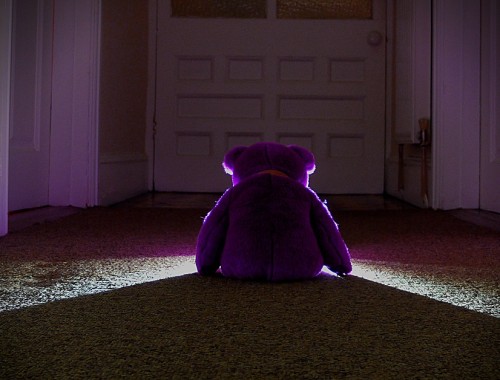One of these days, as I keep promising, I’m going to write an in-depth article on why I’m against the concepts of Inherited and Original Sin, but today I have a migraine that I can’t shake so for now I’m just going to make an observation.
There are many good conversations out there talking about the negative consequences of teaching people that their innermost selves, that the core of who they are, is absolutely corrupt and wicked. I’ve talked about one here– that telling me that I cannot allow myself to trust my instincts caused emotional harm. When you’re utterly convinced that everyone else’s opinion of you automatically carries more weight than what you think about yourself … you’re going to be particularly vulnerable to emotional abuse and bullying.
On top of that, teaching your children to believe that they are horrible, disgusting, repulsive monsters is an inherently abusive thing to do to them. If your theology even remotely resembles the tactics that nearly every abuser relies upon, you need to evaluate your beliefs. My friend R.L. Stollar has an excellent long-form article on this subject, and even though it might take you a while to plow through it, you should. While Stollar is dealing with the way Inherited Sin appears in the fundamentalist homeschooling subculture, the same basic idea– although not taken to the same extreme– is present in the rest of Christian culture and the bulk of Christian tradition, fundamentalist or not.
I don’t need much else to convince me that teaching Inherited Sin is a woefully bad idea, but this morning I saw this come through my private facebook feed:
The truth is that the more intimately you know someone, the more clearly you’ll see their flaws. That’s just the way it is. This is why marriages fail, why children are abandoned, why friendships don’t last. You might think you love someone until you see the way they are when they’re out of money or under pressure or hungry, for goodness’ sake.
Love is something different. Love is choosing to serve someone and be with someone in spite of their filthy heart. Love is patient, love is deliberate. Love is hard. Love is pain and sacrifice, it’s seeing the darkness in another person and defying the impulse to jump ship.
I won’t deny that love is hard sometimes. Forgiveness can be difficult. Relationships can be trying. Occasionally, you’ll saw your tongue in half just to keep the peace. People can be careless, thoughtless, and sometimes you’ll find yourself staring at your reflection repeating “she didn’t mean it that way, you know she didn’t, just let it go” while you practice breathing exercises and your heart pounds with frustration and hurt. You’ll even hurt the people you care about, and you hope they have same patience with you.
However, if you are convinced that all people are born with “filthy hearts” and “darkness,” that they’re innately evil, and that it’s your job to “love them in spite of their filthiness” … you’re going to stay with an abuser, and you’re not going to be surprised when someone is horribly cruel or incomprehensibly selfish. You’ll expect it. “Love is patient, love is kind” will exist against a backdrop of believing that every person was inescapably born to be an abuser.
Becoming an abuser isn’t something that happens to people because they were born monsters. Our culture is permeated with millions of tiny little ways that enable abuse, that teach us all that abusing others is how to win, how to be successful. After all, racism and misogyny are really just abuse writ large.
However, becoming an abuser is not our default. It is not the thing we’re born with that only accepting Jesus into your heart can overcome. What happens is the opposite: only a few people become abusers, and they target specific victims. Most of us can cause harm, could even do abusive things on occasion, but the intentionality of abusers is absent from decent people. Most of us don’t want to break down another human being into a tool we can use for our own gratification. Instead, when we look around the world, we generally see people who have a right to their autonomy.
The consequence of teaching us that we are all born desperately, unimaginably evil is that we won’t be able to recognize true evil when it happens to us. All we truly know is ourselves, and systematically destroying another person’s sense of self wouldn’t occur to us– but we’re all evil, right? So if our partner spends a lot of time telling us how untrustworthy we are, how terrible we are, how we deserve having our possessions destroyed, our body beaten, our souls violated, where is the space to call this abuse in the context of Inherited Sin?
I’m not saying it’s impossible, of course. I was calling my ex an abuser and rapist long before I stopped believing in Original or Inherited Sin. But what I do know is that I told myself love is patient, love is kind when he was abusing me. I comforted myself with the understanding that we’re all Fallen, but God is doing a work in him. I just had to stick it out until Jesus overcame his “Old Man.”
Jesus gave us a tool to help us evaluate doctrine: a good tree cannot bear bad fruit. If the doctrine is good, then the natural outworking and practice of that doctrine will be beneficial, just, and life-giving.
The lived reality of Inherited Sin is none of those things.



